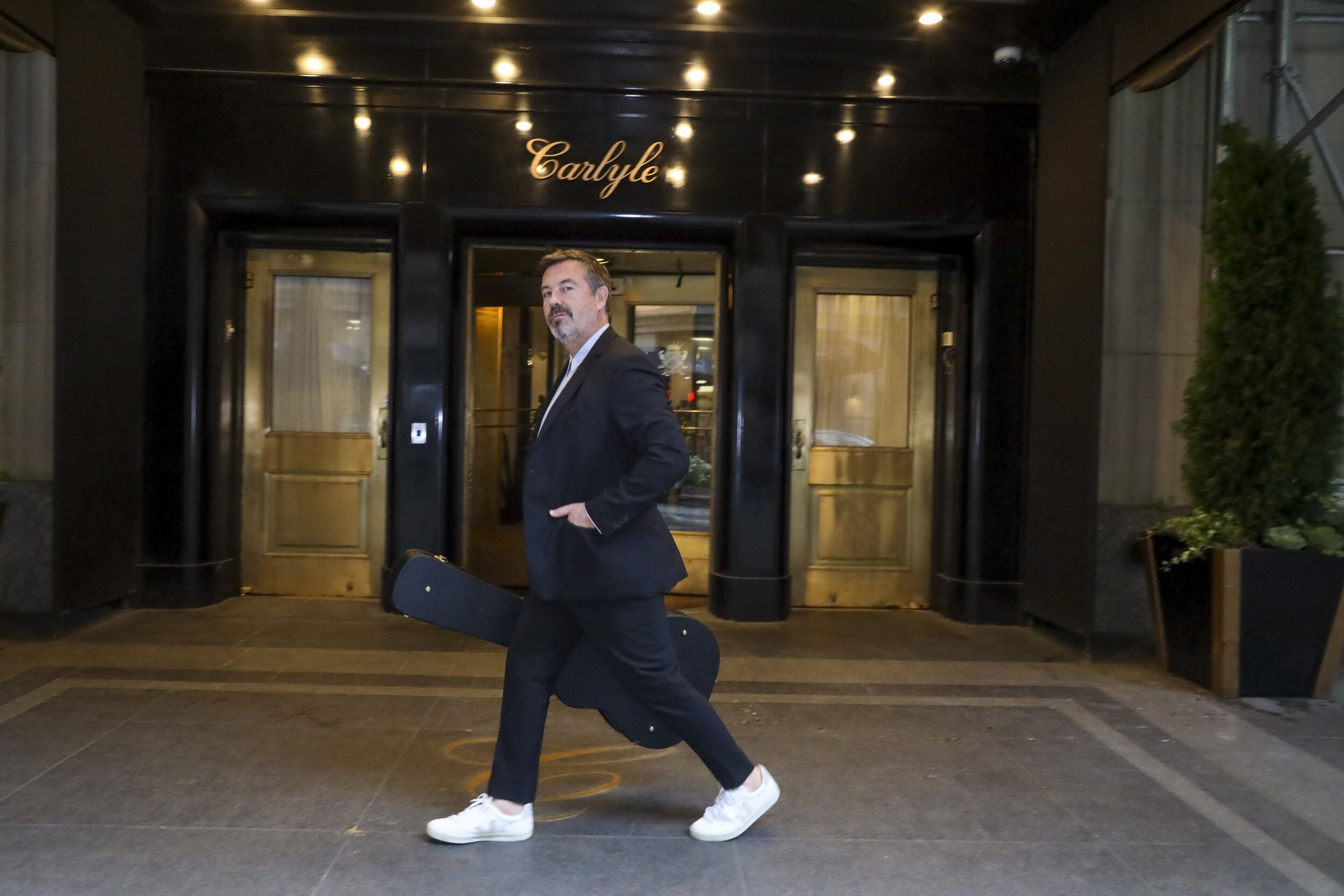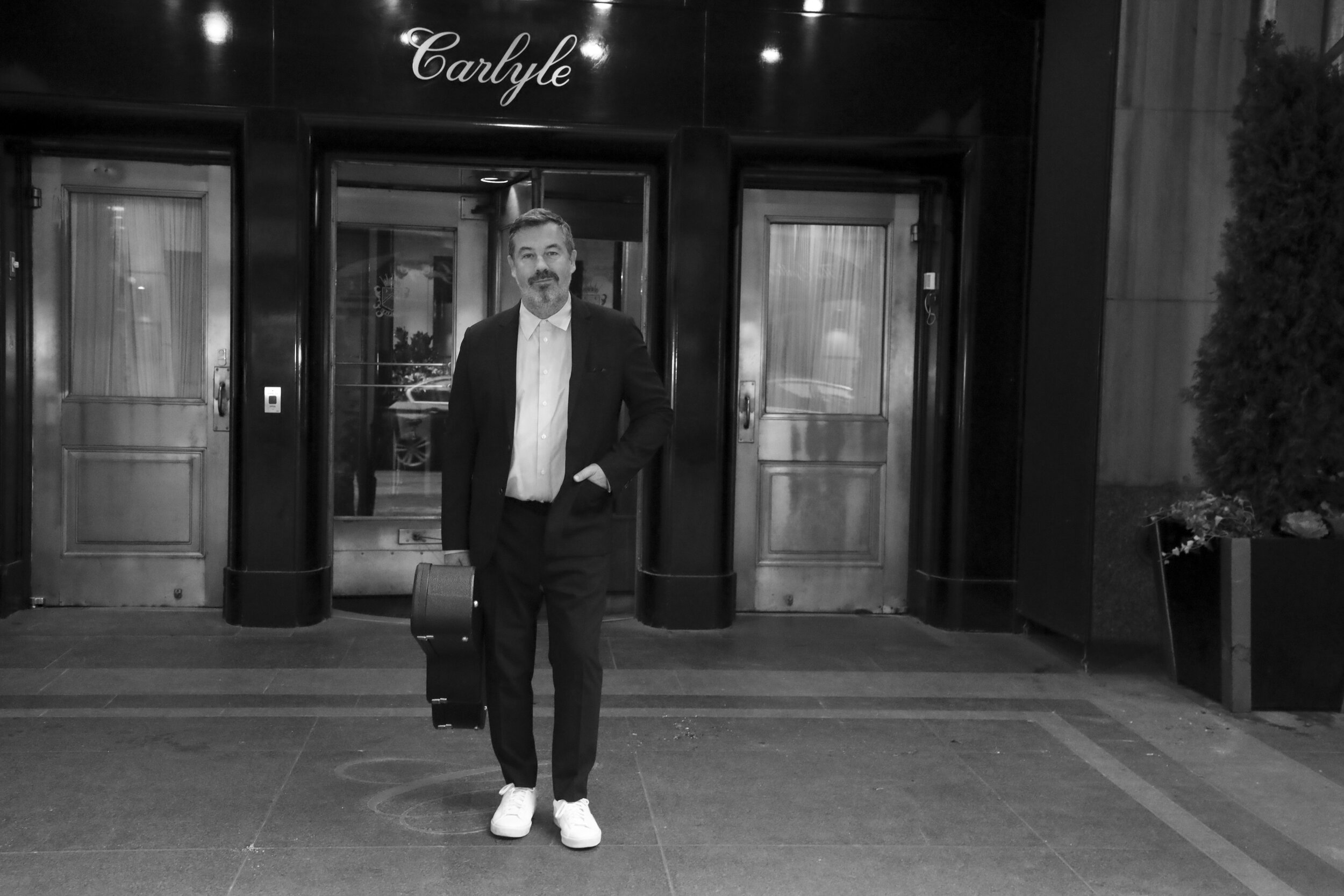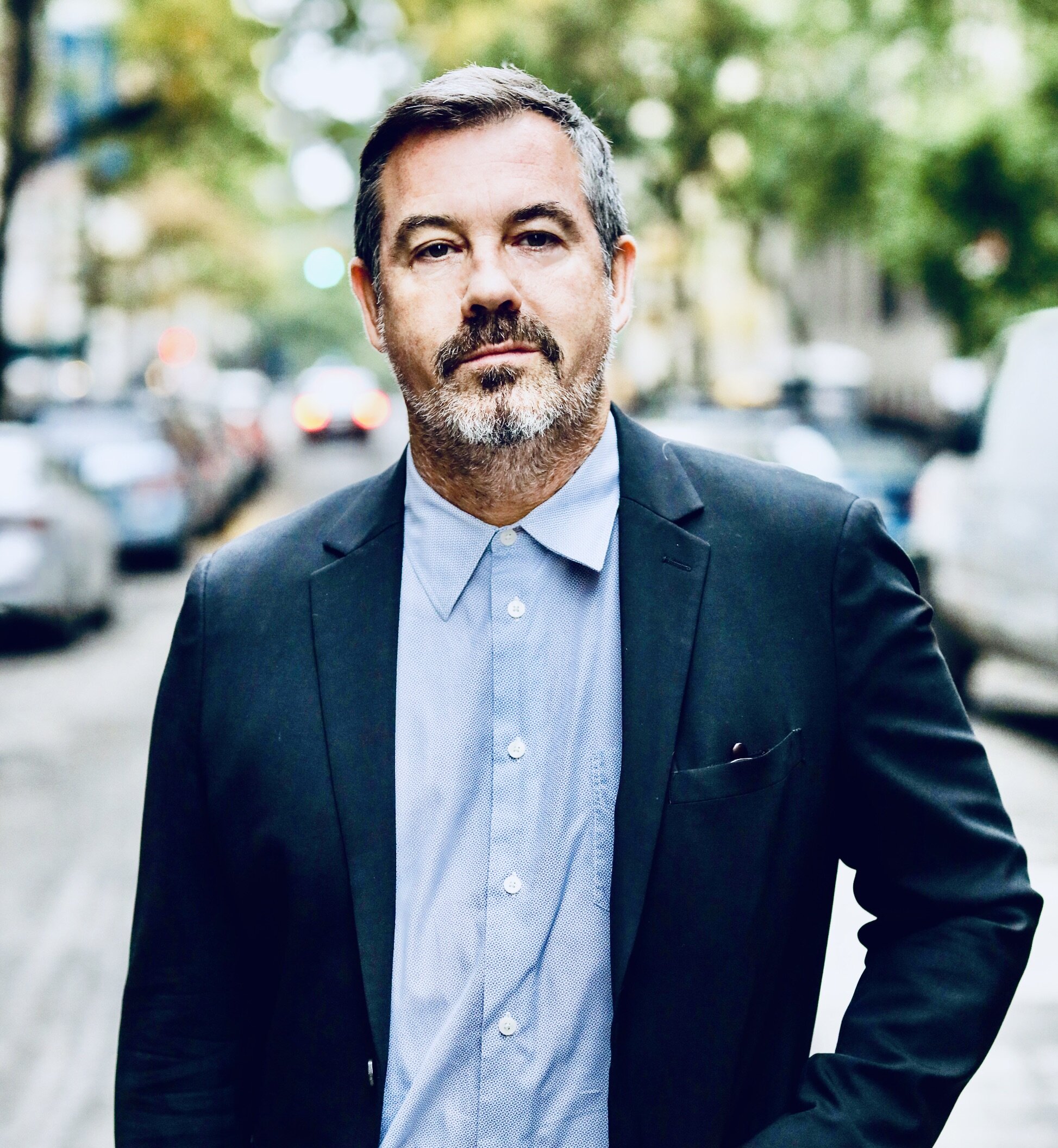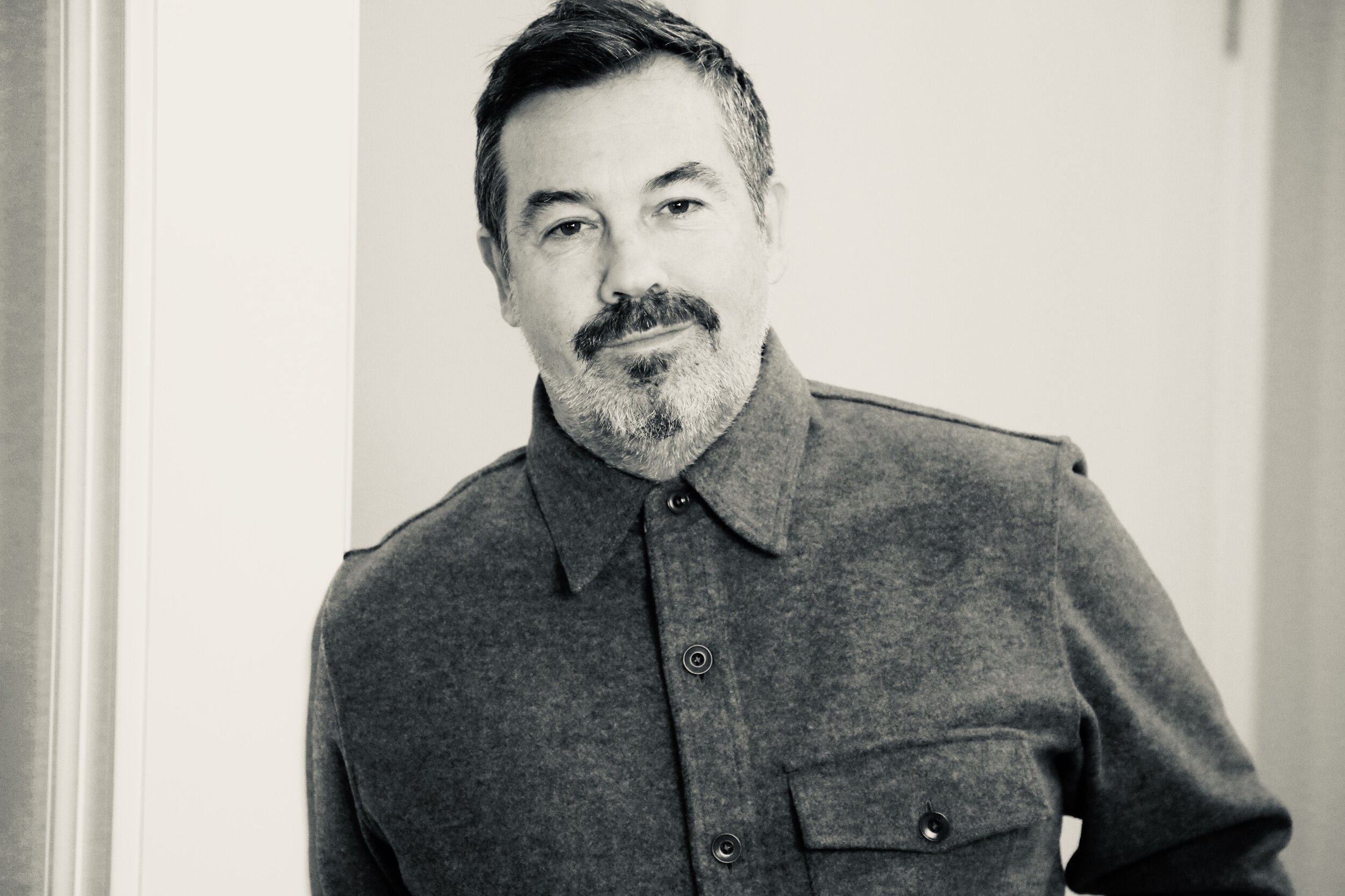Click Image to Download!
Duncan Sheik’s adventurous nature is equaled only by his restless musical curiosity – or as he puts it, “lofty, implausible aspirations.” On the one hand, he’s a thoughtful, pop-rock troubadour who’s ruled airwaves with hits like “Barely Breathing” and placed a string of albums on the Billboard charts. On the other, he’s one of the newest – and even he would say most improbable – kings of Broadway, having collected Tony Awards and a Grammy Award for his maverick score to the smash rock musical Spring Awakening, among other stage triumphs.
Sheik himself admits that he has “a balkanized set of fans – the musical theater people are really into their musical theater, while pop and rock people are very set on what they like.” As for how he tries to reconcile the two camps, he doesn’t: “Whatever you’re into is what you’re into. I probably won’t change anybody’s taste in music, so I just do what I like. Whatever you want to take from it is up to you.”
For both sets of Sheikophiles, there’s his latest release, Live at The Café Carlyle, an enthralling and sublime concert document that captures the singer-songwriter in mesmerizing form. Recorded during a 2017 five-night stand at the famed, intimate New York City nightspot, the 17-cut album serves as a crisp retrospective of Sheik's two-decade career: There’s a bravura performance of “Barely Breathing,” the breakout hit from his 1996 eponymous debut, along with hauntingly beautiful renditions of a handful of songs (“Memento,” Such Reveries” and “For You”) from 2002’s Daylight. Observing the fragility and volatility of human relationships, his delivery of “Lay Down Your Weapons” (a single from 2011) is soul-quaking stuff.
From his most recent studio album, 2015’s electronic/acoustic song cycle Legerdemain, Sheik turns in transcendent takes on “Half a Room,” “Circling” and “So There.” And from his musical theater oeuvre, Sheik treats listeners to selections from Spring Awakening (“Mama Who Bore Me,” “Touch Me”), Alice By Heart (“Afternoon”), American Psycho (“This is Not An Exit”) and The Nightingale (“My Extraordinary Past”) with impassioned performances that never repeat a mood or emotion.
Accompanying himself on guitar, Sheik is backed by a pair of ace virtuoso players – Doug Yowell on drums, Jason Hart on piano, harmonium, synth bass and glockenspiel. He’s also joined by Tony-nominated singer Kathryn Gallagher, who assumes the forceful lead on “Mama Who Bore Me” before dueting with him exquisitely on the blissful “Afternoon”, “Touch Me” and “This Is Not An Exit”.
As for how he arrived at such an eclectic set list, he says, “It was mainly based on what I felt like playing that night. But I also paid mind to what would sound good and complement this musical setup, a trio rather than a rock band or a string quartet. Also, I considered the intimacy of the space and asked myself ‘what would sound good in that room?”
He adds with a laugh, “What’s interesting about the Café Carlyle is that it’s part of a hotel, so there were some people coming in who were just checking out the evening’s entertainment. It was humbling in some way because they weren’t there to hang on my every word. There’s something dangerous about that, but I enjoyed it.”
Sprinkled throughout the set are inspired covers – Depeche Mode’s “Stripped” (which appeared on Sheik’s 2011 album, Covers 80s), Radiohead’s “Fake Plastic Trees,” and “Forbidden Colors” from the film Merry Christmas Mr. Lawrence – that he inhabits as if they were his own. Noting his choice of Tom Petty’s “A Face in the Crowd,” here rendered with gutsy reverence, Sheik recalls, “Tom Petty had died the week I played the Carlyle. I had never covered a Tom Petty song before, but I was a fan from a distance. It was a tip of the hat to a great songwriter and performer.
Sheik was born in Montclair, New Jersey, but grew up in South Carolina. At the age of six, he got his first guitar and a copy of Yes’ Fragile, which sparked an early interest in prog rock and a fascination with the more adventurous musical artist’s of the late 70s and early 80s. In his teens he seized on the sounds emanating from the UK. “I got into the usual ‘90s alternative bands – Talk Talk, Japan, Tears for Fears, the Smiths, Depeche Mode, New Order” he says. “It was pop music, but the stuff I liked had more of an arty sophistication to it.”
While studying semiotics at Brown University, Sheik began toying with the idea of making his own music. His first real taste of performing on stage was as a guitarist for the band Liz and Lisa (which featured award winning children’s musician Elizabeth Mitchell and future star Lisa Loeb), but he spent most of his time writing and recording on his own. “I was in my dorm room a lot, working with headphones on. I still didn’t have a clear idea what I was going to do musically. A lot of what I recorded was instrumental because I still wasn’t singing. It was only very sheepishly and privately that I started to sing on my recordings.”
Following his graduation from Brown University, Sheik moved to Los Angeles, where his demo landed him a deal with an indie boutique label which led to a publishing deal with BMG and, ultimately, a recording contract with Atlantic Records. His 1996 self-titled debut album for Atlantic contained lush, ethereal gems like “She Runs Away” and “Reasons for Living,” but it was “Barely Breathing” that hit radio like a fireball, propelling the record to gold status and eventually earning Sheik a Grammy nomination for “Best Pop Male Vocal”. “It’s a typical story – that was the last song written for the record,” he says. “And when it got on the radio, it was like, ‘Holy shit, now I’ve got to play some shows. “I was a little uncomfortable at first. It was a whole new universe to me.
While other artists might zig to chase another hit single, Sheik zagged. His next couple of albums (1998’s Humming and 2001’s Phantom Moon) grew more elaborate both compositionally and sonically, but they also ventured outside of the pop mainstream, which was fine by Sheik. “This coincided with the end of the mini-era of organic alternative music on American radio,” he remembers.
His 2002 album Daylight was made with a more concerted nod to commercial considerations, but by this time Sheik was headed toward newer, wholly unexpected adventures. He composed the music for a New York Shakespeare Festival production of Twelfth Night and wrote scores for a couple of indie films. During that time, he had befriended poet/playwright/lyricist Steven Sater, who provided lyrics for Phantom Moon, but when Sater suggested that the two rework the 19th century German play Spring Awakening (concerning teens discovering and coming to terms with sexuality) as a rock musical, Sheik’s first thought was “That’s a terrible idea.”
Gradually, though, he came around, and as the two collaborated – Sater wrote the book and lyrics, Sheik took care of the music – the project seemed to match Sheik’s high-minded pop-rock interests perfectly. It also allowed him the opportunity to color outside the accepted lines of standard musical theater fare. “As I’ve always sort of done, I pretty much wrote what I wanted,” he says. “The fact that I was a little naive about the whole process was actually to my benefit.” He laughs and adds, “If I had known what I was getting into, I might not have done it at all.”
Hitting Broadway at the end of 2006, Spring Awakening wowed both critics and audiences, and in 2007 the production swept the Tony Awards – its wins included “Best Musical”, “Director” and “Book”, and for Sheik awards for “Best Score” and “Best Orchestration” (he would also take home a Grammy). The original show ran on Broadway for two years, and it spawned numerous productions worldwide. “The show’s success is gratifying on so many levels.” Sheik says. “Above all, it’s that you have to get emotionally invested and excited about the work that you're doing for the sake of the work itself. And then, you just let it go.”
Sheik continued to release solo albums. His 2006 set White Limousine transfixed listeners with its rich arrangements and hyper-aware, sometimes self-deprecating lyrics, most notably in the song “Shopping”. “It’s me saying, I did a deal with the devil,” he observes. “I wrote all these songs so that you have something to listen to while you’re at Home Depot." His 2009 narrative album Whisper House was written as the score to a ghost short stage production that premiered in San Diego the following year (it recently opened in New York but performances were suspended due to COVID). And by the end of the decade he re-imagined songs by his musical heroes (among them, the Cure, Depeche Mode and the Psychedelic Furs) on Covers 80s. This would be followed by a companion set, 2012’s Covers 80s Remixed.
More film and theater projects followed: He scored Mary Stuart Masterson’s 2007 film, The Cake Eaters, and with Steven Sater he adapted Alice in Wonderland into the musical Alice by Heart – the production was originally presented by London’s Royal National Theater in 2012, and it premiered off-Broadway in 2019. Adapting Bret Easton Ellis’ chilling novel American Psycho as a musical offered Sheik the chance to set sail with a deeply electronic score and lyrics that blended horror and cheeky dark humor. The production premiered in London in 2013 and opened on Broadway in 2016. Sheik has also written the music for productions of The Secret Live of Bees and Because of Winn-Dixie, among other works.
“I’m really happy that all of the theater productions I’ve been involved with have been so different from each other, and sometimes not what’s expected of musical theater at all,” he says. “Sometimes they’re exercises in genre but what’s great is how they broaden the palate of what sounds I can play with. I'm not just stuck in one mode – ‘Oh, yeah, that's the white guy with an acoustic guitar who sings about girls who don't like him anymore.’”
On Legerdemain, Sheik brought all of his strengths and interests full circle, embracing both ‘80s new wave synth sounds and classic singer-songwriter acoustic folk, on a captivating set of songs that masterfully balanced heartfelt sensitivity and foreboding tension. “I had a lot of fun on that record going back and forth between organic instruments played by human hands and more obscure bits of technology and modular synthesizers,” he says. With Legerdemain, it was my first foray into really trying to find that hybrid.”
As for what’s next, Sheik says that he’s started working on a set of new songs. “I can say for certain that they’re not for any theater pieces and will probably be the next Duncan Sheik record, for lack of a better word. I'm really excited about what's happening with it all musically. I have no idea what's happening with it lyrically yet, but that's usually a later part of the process for me anyway.”











